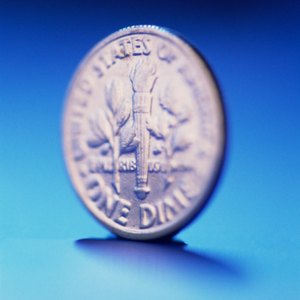
A rare old penny can be worth a fortune, or it may be worth a penny. If you show your old coins to a dealer, he'll tell you which it is--but you may wonder if you can trust him, or if the price he offers you is a fraction of the true value. Even if you're a novice numismatist (coin collector), with a little research and networking, you may be able to find a dealer you can rely on to tell you the truth.
Research your coins before you talk to anyone else. There are multiple coin price guides available that you can use to help you appraise your collection and form some idea of its worth. If you're not an expert, the best you may be able to manage is a price range. Grading old coins can be very subtle, the Absolute Rarities website states, and the difference between "Mint 64" and "Mint 65" grades on some coins could mean double the value.
Browse coin magazines and look at what similar coins sell for. Book value is one thing but the only definitive measure of a coin's value is what someone else is willing to pay for it.
Network with other collectors. If you meet up with a local coin club, members may be happy to give you tips or advice on your coin collection. You can also ask the membership to recommend local coin dealers who can be trusted to appraise your coinage honestly.
Check whether the coin dealer belongs to a professional association. Groups such as the Professional Numismatists Guild (PNG) or the American Numismatic Association set codes of ethics for their members. Guild members, the PNG states, can be kicked out for fraud or crooked dealings.
Contact more than one dealer. Even if you go to reputable, ethical numismatists, there can be an honest disagreement about prices. Also, if you're looking to sell, the offers you get may depend on the dealer's particular interests as much as the resale value.
Tips
Homeowners insurance protects personal possessions but it only offers limited coverage for collectibles such as coins or stamps. If your collection is valuable, consider taking out a "floater" policy that offers extra coverage.
References
Resources
Tips
- Homeowners insurance protects personal possessions but it only offers limited coverage for collectibles such as coins or stamps. If your collection is valuable, consider taking out a "floater" policy that offers extra coverage.
Writer Bio
A Durham, NC resident, Fraser has written about law, starting a business, balancing your budget and fighting evictions, among other legal and financial topics.
